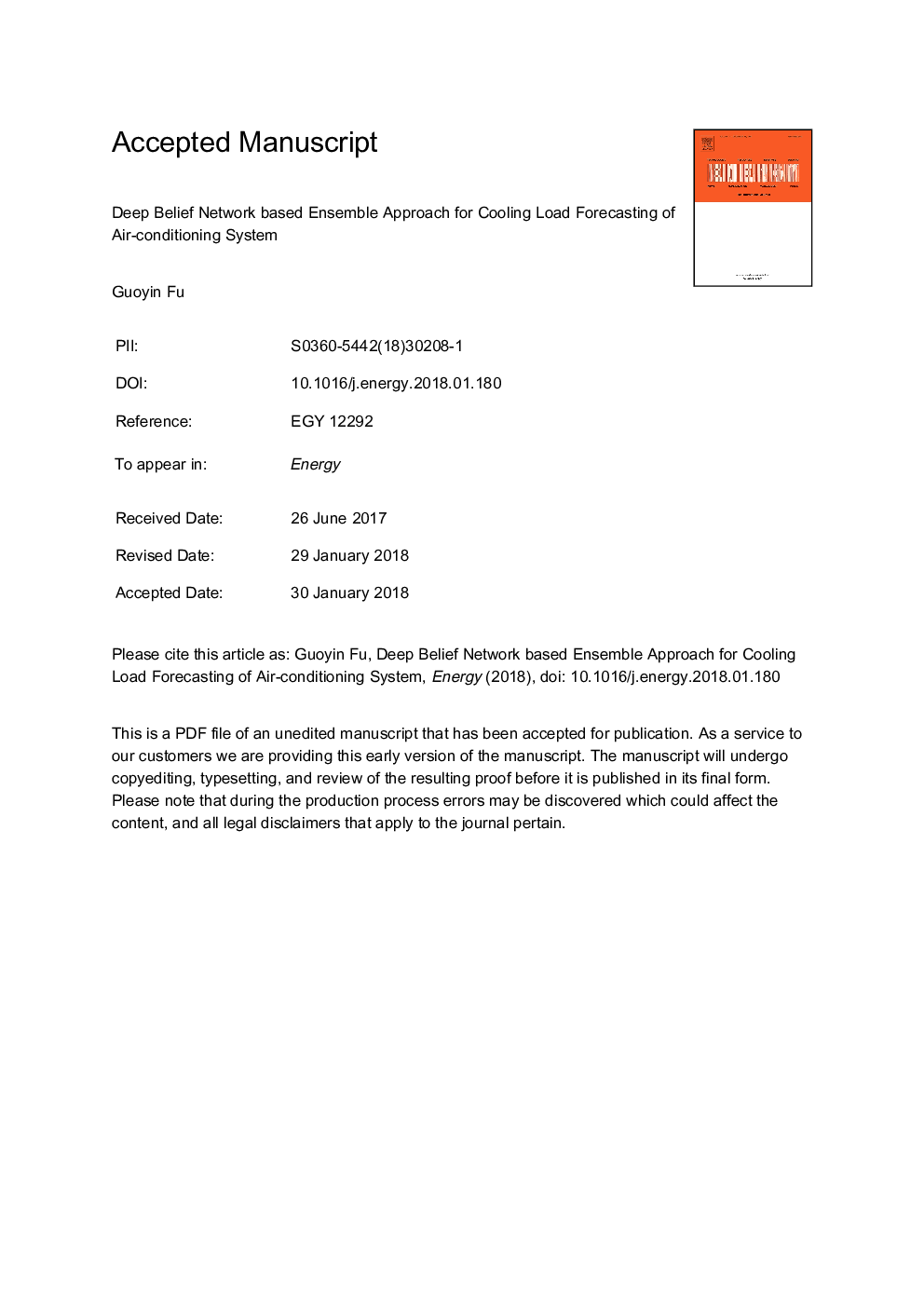| Article ID | Journal | Published Year | Pages | File Type |
|---|---|---|---|---|
| 8071996 | Energy | 2018 | 30 Pages |
Abstract
Due to the high energy consumption in buildings, cooling load forecasting plays a crucial role in the planning, control and operation of heating, ventilating and air-conditioning systems. However, cooling load data series always exhibit nonlinear and dynamic features, making it very difficult to be forecasted accurately. Therefore, a novel deep learning based hybrid approach is originally proposed in this paper for deterministic cooling load forecasting with high accuracy. The approach is a hybrid of empirical mode decomposition, deep belief network and ensemble technique. Empirical mode decomposition is applied to decompose the original cooling load data series into several components with better outliers and behaviors. The hidden nonlinear features and high-level invariant structures in data are effectively extracted by layer-wise pre-training based deep belief network. In addition, ensemble technique is introduced and properly designed to mitigate the impact of uncertainties, i.e., model uncertainty and data noise, on forecasting accuracy. Case studies using real cooling load data collected from Shenzhen and Hong Kong have been implemented. The numerical results demonstrate that the proposed forecasting approach exhibits competitive performance when compared to the prediction algorithms of the state of the art. It is therefore convinced that the proposed approach has a high potential for improving the operating performance in energy systems.
Related Topics
Physical Sciences and Engineering
Energy
Energy (General)
Authors
Guoyin Fu,
